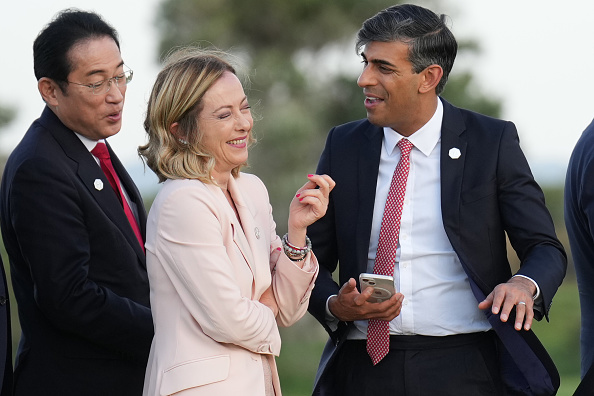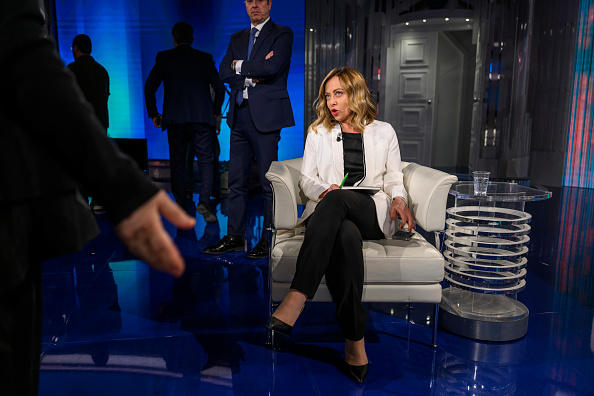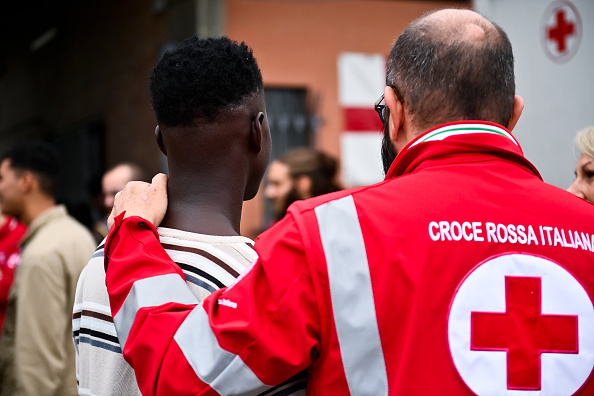Italian Prime Minister Giorgia Meloni said the presentation by six EPP, S&D and Reform group members of a list of who would get the European Union’s top jobs at a Brussels summit was “surreal”.
Her comments came after a June 17 dinner of EU leaders.
“Some people presented names for positions” on which they had agreed at a private meeting beforehand and to which they had not invited the other leaders, Meloni told an audience at Milan’s Festa de il Giornale on June 19 .
Germany’s Chancellor Olaf Scholz, France’s President Emmanuel Macron and the other four leaders had decided on their preferred candidates “without even first attempting to reflect on what the message coming from citizens was. I don’t interpret democracy like that”, said Meloni.
The other 21 leaders at the gathering waited for three hours before the dinner began late — with Meloni, who was among them, particularly unimpressed by what she said was an attempt to sideline her.
The European Conservatives and Reformists (ECR) bloc, which she heads in the European Parliament, “has become the third group by number of parliamentarians in Europe”, after an election that “clearly shifted Europe’s centre of gravity to the Right”, Meloni said in the public interview with il Giornale’s editor Alessandro Sallusti.
She warned Scholz, a member of the Socialist & Democrats (S&D) and members of Ursula von der Leyen’s European People’s Party (EPP) that “continuing to pursue or follow the policies of the Left in recent years would be fatal”.
The ECR now has 83 members of the European Parliament, overtaking Macron’s Reform bloc, which currently possesses 80.
In the preceding week, the ECR had acquired six more members. They were from the Denmark Democrats, the Bulgarian ‘There is Such a People’ party, the Lithuanian Farmers and Greens Union, four former members of France’s Reconquête party, and the Alliance for the Union of Romanians (AUR).
For Meloni, the ECR displacing Reform as the third-largest EP group should entitle it to one of the EU’s three most powerful positions.
The past five years have seen a European Commission President, von der Leyen, from the EPP, European Council President Charles Michel from Reform/ALDE, and EU High Representative Josep Borrell from the S&D.
With the ECR now larger than Reform, one of those places should go to her group instead, argued Meloni.
The Italian has cast particularly public doubt on the qualifications of Estonia’s PM Kaja Kallas — a Reform bloc member — to serve as High Representative.
On June 17, Meloni said Kallas should give some indication of her foreign policy views beyond the Russia-Ukraine conflict.
EPP officials, for their part, have disputed the significance of the ECR displacing Reform as the third-largest group. What matters, they said, is that together the EPP, S&D and Reform control 55 per cent of votes in the new European Parliament.
That may remain the case if all members of the three blocs vote with their leadership in the upcoming secret ballot.
Five years ago, they did not. While in theory 516 MEPs should have voted for von der Leyen as EC President, only 383 actually did. This gave her a majority of just nine although she was the only candidate.
The question now is how much other parties want to risk antagonising the Italian PM.
“They need Meloni; here endeth the first lesson,” an EU diplomat told The Times on June 19.





